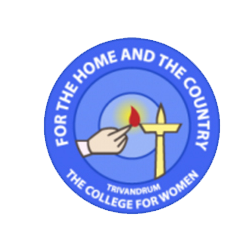

Govt. College for Women, Thiruvananthapuram
Thiruvananthapuram, Kerala
Govt. College for Women, Thiruvananthapuram, one of Kerala’s most prestigious institutions, has been a pioneer in women’s education for over 150 years. Known for its commitment to academic excellence, the college offers a dynamic and inclusive environment where faculty members and students collaborate in the pursuit of knowledge and personal growth. The Govt. College for Women, Thiruvananthapuram faculty plays a central role in shaping this environment, bringing a wealth of experience, academic rigor, and research innovation to the institution.
Academic Departments and Areas of Study
The diversity of departments in Govt. College for Women, Thiruvananthapuram reflects the institution’s broad academic vision. The college offers undergraduate, postgraduate, and doctoral programs across three major streams—Arts, Science, and Commerce. There are over 20 academic departments, including:
Arts: English, Malayalam, Hindi, History, Economics, Political Science, Sociology, Philosophy
Science: Physics, Chemistry, Mathematics, Botany, Zoology, Home Science, Statistics
Commerce: B.Com and M.Com in Finance
Languages: Sanskrit and French (as additional languages)
These departments are supported by a robust academic framework and are affiliated with the University of Kerala. Interdisciplinary teaching and research are encouraged, giving students a well-rounded academic experience.
Faculty Strength and Qualifications
The Govt. College for Women, Thiruvananthapuram faculty is composed of over 100 teaching staff, including professors, associate professors, and assistant professors. The majority hold PhDs in their respective disciplines, while many have pursued post-doctoral research, attended international seminars, and published in reputed academic journals.
Faculty members are appointed through rigorous procedures under the Kerala Public Service Commission (KPSC), ensuring that only the most qualified and experienced educators serve the institution. Several departments are recognized research centers, and faculty members are actively involved in guiding M.Phil and Ph.D. scholars.
Notable Faculty Achievements
While the college boasts many accomplished faculty members, a few have received recognition for their outstanding contributions:
Dr. Nirmala Devi (Department of Zoology) received accolades for her research in environmental science and biodiversity conservation.
Prof. S. Sreelekha (Department of English) is widely published and known for her contributions to feminist literature and postcolonial studies.
Faculty members in the Department of Chemistry and Physics have also led major research projects funded by UGC, DST, and other government bodies.
Many professors are active members of professional academic bodies, contributing to curriculum development, policy-making, and research dissemination at both national and international levels.
Teaching Approach and Research Culture
The teaching methodology at the college is a blend of traditional academic instruction and practical learning. Classroom lectures are complemented by:
Laboratory sessions and field work (particularly in science and home science departments)
Seminars, paper presentations, and group discussions
Project work and dissertations for final-year undergraduate and postgraduate students
Internship opportunities and academic tours, enhancing real-world exposure
The faculty encourages research-based learning, and students are often involved in departmental research projects and data collection initiatives. This approach prepares students for higher education, competitive exams, and professional environments.
Additionally, the use of ICT-enabled classrooms, e-learning platforms, and digital libraries ensures that students are well-versed in contemporary academic tools and methods.
Student–Faculty Ratio
The student-faculty ratio at Govt. College for Women, Thiruvananthapuram is approximately 20:1, which allows for personalized attention and meaningful academic interaction. This favorable ratio enables faculty to mentor students closely, assist in their academic progress, and provide guidance for competitive exams, higher studies, and career choices.
The small class sizes in many postgraduate programs further enhance the quality of academic engagement and encourage in-depth discussions.
Conclusion
The Govt. College for Women, Thiruvananthapuram faculty represents a rich blend of experience, academic brilliance, and dedication to student success. The diverse departments in Govt. College for Women, Thiruvananthapuram not only offer a range of academic choices but also foster an environment of inquiry and creativity.
With a strong research culture, modern teaching methodologies, and an ideal student-faculty ratio at Govt. College for Women, Thiruvananthapuram, students are nurtured to become confident, competent, and socially responsible individuals. The academic environment here is a testament to the college’s vision of empowering women through education, knowledge, and innovation.
